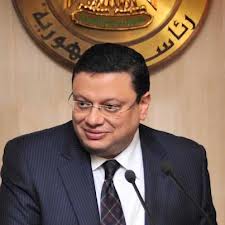CAIRO: US Secretary of State Hillary Clinton on Tuesday voiced support for Egypt’s transition to democracy but made few specific pledges and steered clear of an Egyptian debate over the timing and pace of elections.
In her first visit to Cairo since long-time ally Hosni Mubarak was toppled by a mass uprising, Clinton also signaled the United States would try to preserve the strong alliance with Egypt that has been a cornerstone of Washington’s regional policy.
"This moment in history belongs to you. This is your achievement," Clinton said in Cairo.
"You broke barriers and overcame obstacles to pursue the dream of democracy and the United States and President Obama and I will stand with you as you make this journey," she said during a news conference with Nabil El-Araby, the new foreign minister.
One coalition of pro-democracy activists said it had turned down an invitation to meet Clinton in protest at US policy towards Egypt and the US position on the anti-Mubarak revolt.
US President Barack Obama heaped praise on the protesters the day Mubarak stepped down on Feb. 11 but it was too little too late for the Egyptian activists, who felt his administration gave Mubarak too much support during the uprising.
The January 25 coalition, made up of six youth groups, said in a statement that Clinton was not welcome "because the US administration long supported Mubarak’s corrupt, dictatorial regime financially, politically and morally".
They also called for a more balanced relationship between Cairo and Washington, whose influence they blame for shaping Egyptian policies including their country’s role in enforcing the blockade of the Hamas-run Gaza Strip.
Clinton said: "Egypt and the United States have many strategic interests in common and a democratic Egypt will continue to have strategic interests with the United States."
The military, with which the United States has close defense ties, has governed Egypt since Mubarak stepped down. Clinton met the council’s leader, Field Marshal Mohamed Hussein Tantawi, on Wednesday.
The military has promised to return power to an elected government within six months. Diplomats, analysts and Egyptian politicians believe the army does not want to stay in power.
Clinton said she would discuss "steps that are being taken to lay the groundwork for free and fair elections and the need for those elections to be meaningful".
Leading members in the Egyptian reform movement are concerned that the timetable set by the military is too tight and will give an advantage to the well-organized Muslim Brotherhood and remnants of Mubarak’s National Democratic Party.
Asked about those concerns, Clinton said: "We know that there is an internal debate within Egypt itself as to the timing and pace of when the election should be held."
She added: "We don’t have an opinion. We have a clear message of support for what the Egyptians decide."
US officials have privately voiced concerns about the fact that parliamentary elections are to be held in June, possibly before many political parties will have time to organize after decades of oppression by Mubarak.
US concerns in the new Egypt include the role the Islamist Muslim Brotherhood might play in the government and how that could affect Egypt’s 1979 peace treaty with Israel.
Essam Al-Erian, a spokesman for the Brotherhood, said the organization had not been invited to meet Clinton.
"We have not been invited and if we are we will reject (the invitation)," he said. "Any American intervention will be to halt the revolution and obstruct it and not to support it."
Egypt is a recipient of some $1.3 billion in US aid per year. Washington has said it will spend a further $150 million to assist the move to democracy.
El-Araby said ties with the United States were good, highlighting US economic assistance.
"This is very encouraging," he said.
Clinton said she had also discussed Egypt’s debt.
"Egypt you should be aware is a credit worthy country because you always pay your debts and so part of our challenge is how we can help and we’re looking at ways to do that and we have discussed a number of them tonight," she said. –Additional reporting by Tom Perry.

